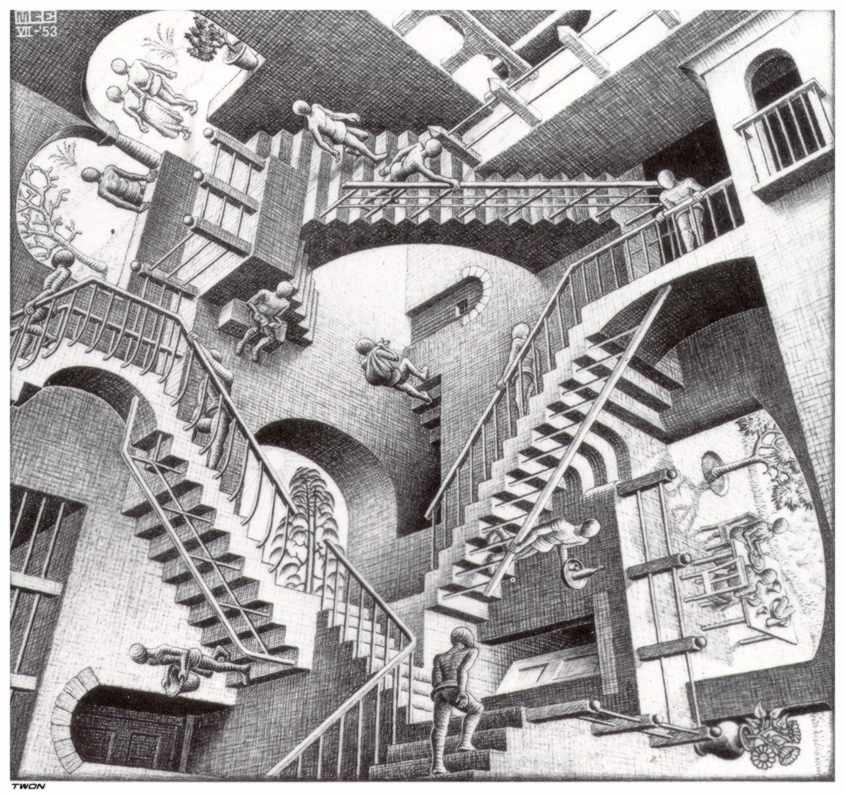For me, any word or phrase can trigger thoughts that are tangential to the original context, then other points of commonality from the original context to these tangential contexts are discovered. I can exploit these commonalities from there.
Sometimes these commonalities are difficult to pinpoint and verbalize, but they can often be abstracted into some overarching framework that explains them all. For example, my fellow simulation researcher ENTP basically made the claim that the subject domain that we're researching--be it business, medical, or engineering--is basically just a data source for us, and they're looking for similar solutions in many cases. Others would say that he's an oddball for thinking this way, but I wholeheartedly agree.
Most any project that I'm working on is like others that I've worked on before; I almost already know how to accomplish it. Most any skill that I'm trying to develop uses such-and-such a principle that I'm already familiar with. With most anyone, I can find common ground for a detailed discussion. And so on.
At least.. that would be my initial approach. Sometimes it can be hard to spot the stark differences that make one context incompatible with another. It's usually in the details, which I tend to gloss over

To others, the contexts that are "tied together" are completely unrelated. But I can't help but find their similarities.
Also,
this might be a good read. It seems accurate enough for how I tend to experience it.
YES; THAT IS EXACTLY IT!!!!!! I have hardly read anything so fitting as this description, and thank you for sharing this with the OP and the rest of us because the thread you linked us to was quite enlightening.
My husband often complains about this tendency of mine. He says, "You are never content with what you HAVE. You are always STRIVING for something new - to DEVELOP in some other way, but you are not CONTENT. This is particularly dangerous nowadays because you don't have the ability to be PATIENT and let things COME to you. Rather, you actively SEEK NEW ways of looking at things, CAREER developments, etc....Kaum bist du irgendwo, ZAK! suchst du eine neue Möglichkeit (You've just managed to achieve something, and BOOM you're looking for a new possibility)." I drive the poor guy bonkers up a tree. It's really amazing he's so patient with me. I'm really lucky to have such a great husband.
Anyway, WAIT A MINUTE - there you go, that's something else....Analyze what I've just written (wait, what the hell did I just write???) I started with thanking you, running to my ideas about it, which I didn't get into because if I did, I'd write a bloody book so I'd rather just sit on my ass and think about it, but not too long. Then, an analogy in the form of an example which I linked it to, and then talked about my husband and how great he puts up with me. Thanks ---> ideas ---> example ---> husband.
Um, okay no connection for many of you, but for me. And this is just one little tangent. I have tangents all the time in my brain. And connections that just don't make sense to most people.
Oh yeah, and I act quite crazy, sporadic, and erratic - well, I don't think so, but most people THINK that because they just can't CATCH UP...you know, well, yeah, I hope that kind of helped a bit. If not, I can try to explain but it's kind of hard because right now my Te is on vacation, so I'm not feeling very structured at the moment, which is why I felt it would be a great time to talk about Ne because my Ne is a bit crazy and untethered at the moment.
Oh, oh, oh, which reminds me of a big, huge-ass difference between my INTX husband and me. So yeah, he notices various aspects in a practical manner and focuses on one thing, and I think that is either Ti or Ni. However, I am not totally sure and could be talking out my ass. Whereas, I kind of hop-scotch around so he hasn't dealt with the first thing I've mentioned when I'm already on the fourth thing. Yet, he can't process all the stuff his dominated introverted function takes a great deal longer than mine to PROCESS stuff.... Therefore, I think, "Damn it, catch up!!!" and he's grumpy and says, "Would you wait a damn minute and back up and let's talk about one thing at a time?" As a result, we both think that the other person is ape crazy when we're really just kind of balancing out aspects of "Yawwwwwnnnnn, let's move on to something else." and "Yawwwwwwn if you're not serious, then screw you." You know?


